Blockchain-Based Medical Insurance System
This project is a comprehensive solution to address trust issues in the medical record-sharing process among patients, doctors, insurers, and pharmacies. The system leverages blockchain technology to digitize prescriptions and ensure secure, tamper-proof data sharing.
Key Features Include:
- Microservices Architecture: Built using Docker containers for scalability and modularity, managed with Docker Compose.
- Backend API: Designed with ExpressJS to handle business logic and data processing.
- Frontend: Developed with AngularJS for an intuitive user interface.
- Monitoring: Integrated Prometheus to track the health of blockchain components, with Grafana for advanced visualization and performance insights.
- Alerting: Configured automated alerts to respond to anomalies, ensuring minimal downtime.
- Automation: Bash scripts automate deployment and setup, streamlining processes and reducing human error.
- Security: Cryptographic techniques and consensus mechanisms ensure data integrity and privacy across a peer-to-peer blockchain network.
The project demonstrates expertise in DevOps practices, system monitoring, and blockchain application development. It also ensures trustless collaboration among parties, significantly improving efficiency and transparency in insurance processes.
Special Thanks
This project would not have been possible without the contributions of my teammates:
- Mina Saad
- Seifeldin Sami
- Marise Medhat
A special thanks to my supervisor, Dr. Ahmad Gohar, for his invaluable guidance, constant support, and encouragement throughout the project. His mentorship made this project a success, and I am deeply grateful for his expertise and time.
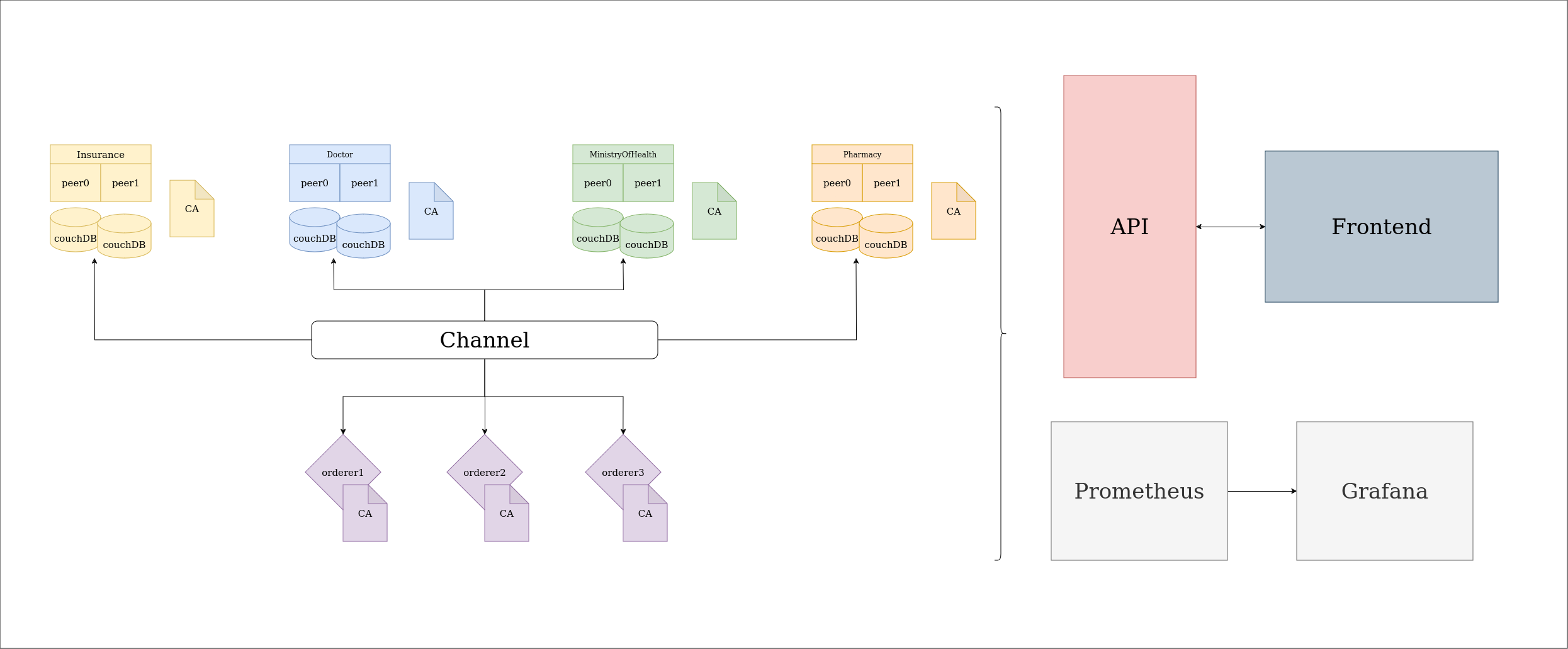
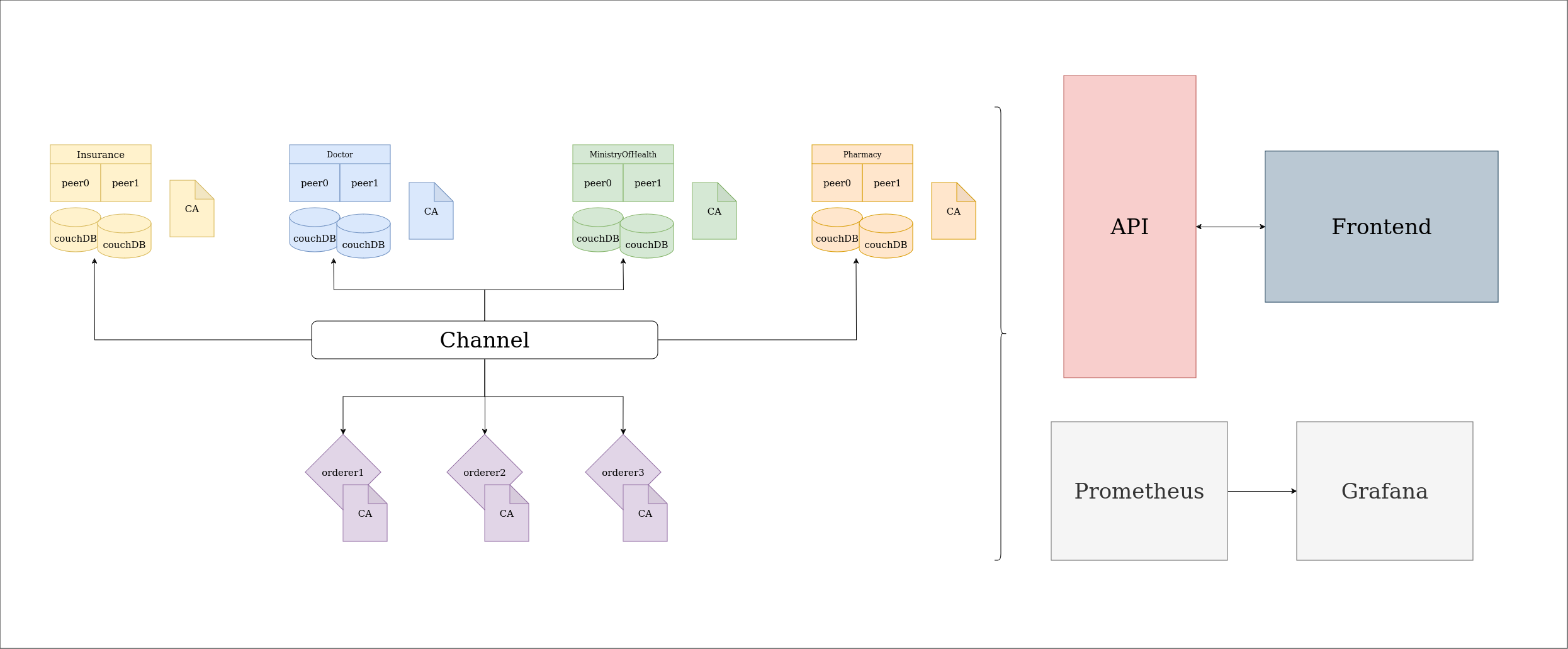
System Architecture Diagram
A detailed diagram showcasing the blockchain network, including peers, orderers, CouchDBs, Certificate Authorities (CAs), and their interactions. This illustrates the microservices architecture, the integration of distributed components, and the use of Docker containers to orchestrate and manage these services through Docker Compose for scalability and modularity.
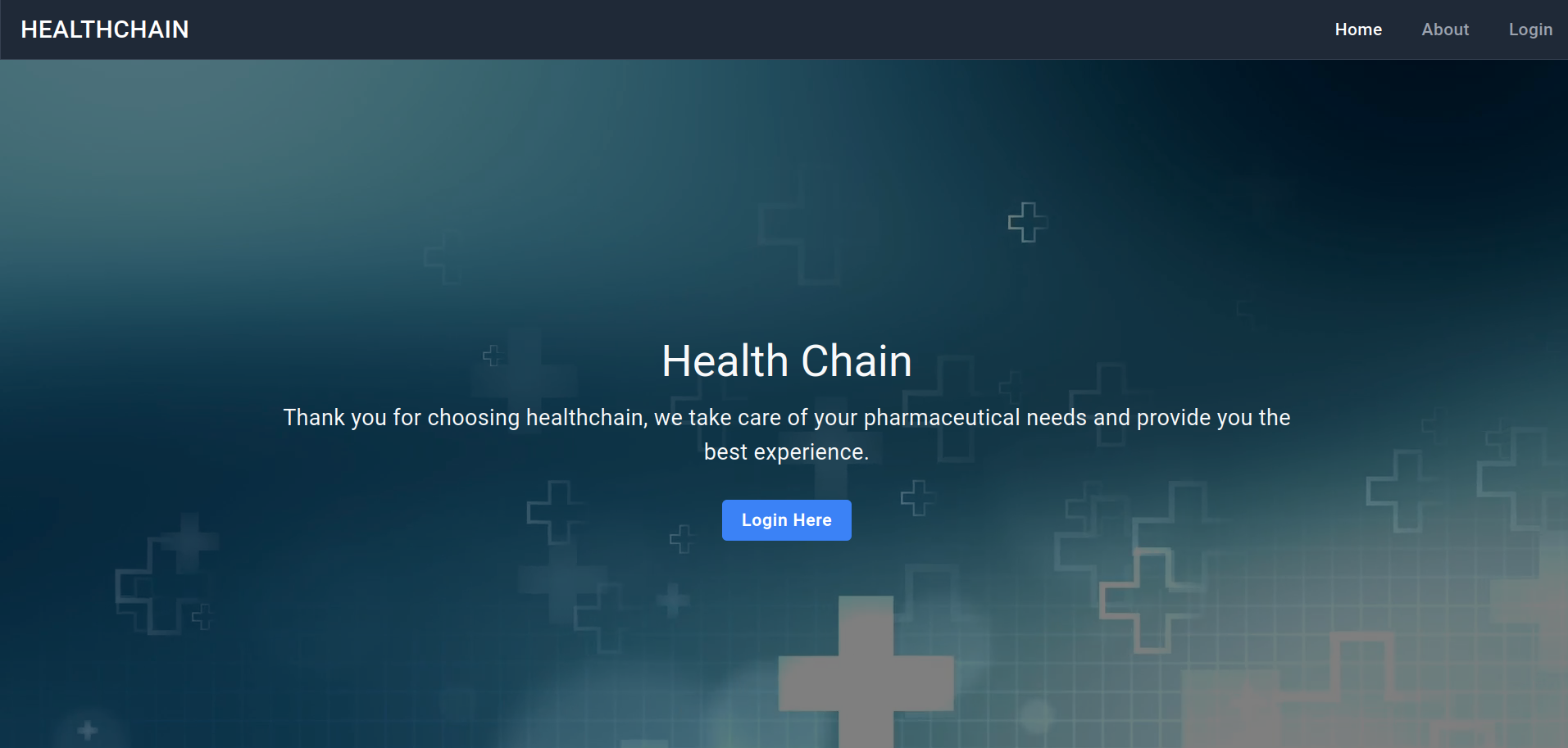
Frontend Interface Screenshot
A screenshot of the web application developed with AngularJS, displaying how users interact with the system for prescription management and data sharing. The backend is powered by an ExpressJS API, handling the business logic and data processing, ensuring smooth communication between the frontend and the blockchain network.
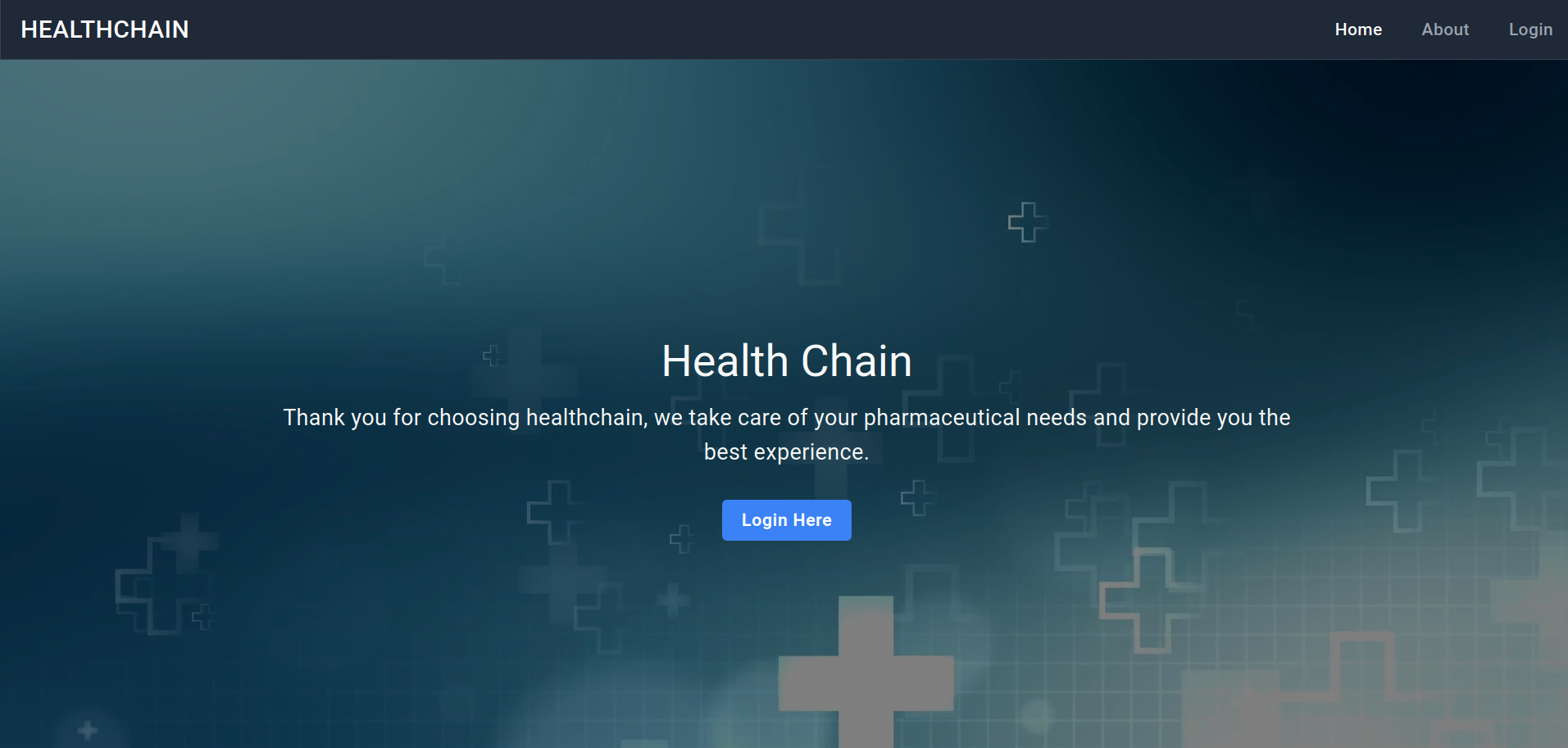
Monitoring Dashboard for Blockchain Metrics
A Grafana dashboard visualizing blockchain metrics, including peer node performance, orderer health, and CouchDB status. This highlights the monitoring and alerting capabilities integrated into the project, providing real-time insights into the health and performance of the blockchain system.
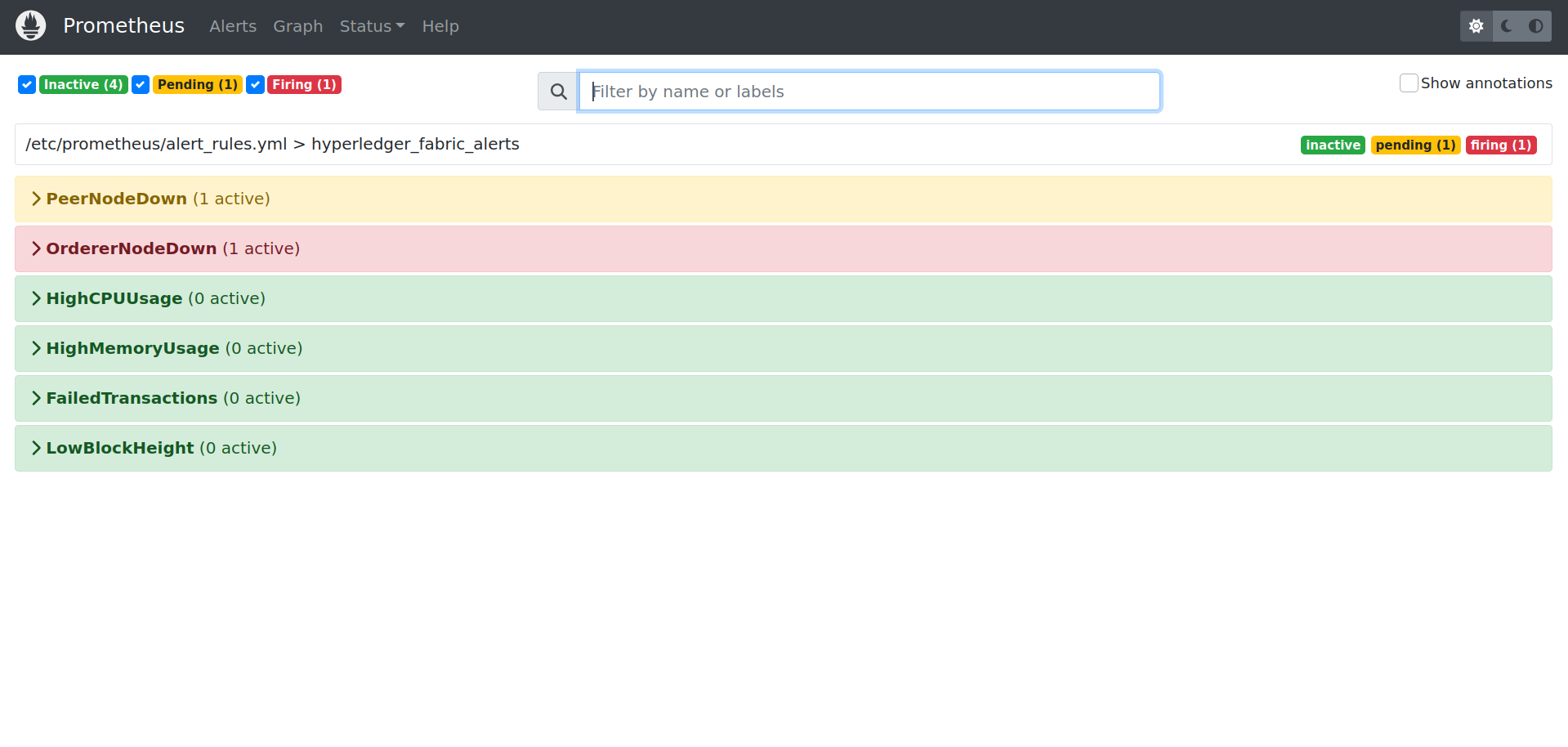
Prometheus Alert Monitoring
A screenshot showing Prometheus monitoring in action with alerts firing up. This highlights how Prometheus tracks system metrics and triggers alerts for any performance issues or anomalies within the blockchain network, which are emailed to the system admin, ensuring proactive response and system reliability through quick responses to incidents.